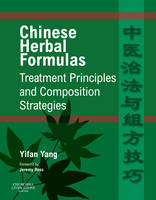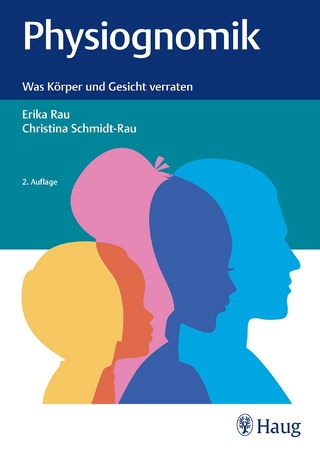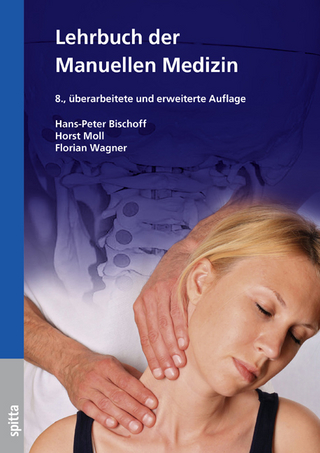
Chinese Herbal Formulas
Churchill Livingstone (Verlag)
978-0-7020-3132-8 (ISBN)
- Titel ist leider vergriffen;
keine Neuauflage - Artikel merken
Traditionally the study of Chinese herbal formulas has involved memorizing hundreds of classic formulas, and recognizing and summarizing the relevant treatment rules and formula-making strategies in order to create appropriate formulas for treatment. This new book by Yifan Yang, author of "Chinese Herbal Medicines: Comparisons and Characteristics" (which pioneered the comparative method of single herb study), introduces a new approach to formula study. The reader is shown how to use the basic treatment rules and composition strategies, abstracted from hundreds of formulas, in order to create individual formulas for treating a variety of syndromes. The method is clear and easy to understand, with a systematic approach and an emphasis on essential knowledge. In this title, 19 common syndromes and 60 sub-syndromes are described and discussed in detail, illustrated with clear line drawings. Chinese diagnosis of syndromes are related to the Western disease names. Treatment principles and plans are given for each syndrome. Principles of herb selection are introduced with recommendations and explanations of specific herbs in relation to each syndrome.
166 classic formulas are given as examples. Treatment strategies in complicated syndromes, treatment sequences, cautionary advice for herbs and combinations with Western drugs, dosage management in a variety of conditions and commonly used pairs of herbs are all discussed. Detailed indexes and contents lists facilitate quick reference and searching within the text. "Chinese Herbal Formulas: Treatment Principles and Composition Strategies" is written by an experienced practitioner and lecturer of Chinese herbal medicine. It is the ideal companion to "Chinese Herbal Medicines: Comparisons and Characteristics", by the same author.
Yifan Yang studied traditional and modern medicine from 1977 to 1982 at Beijing University of Traditional Chinese Medicine and, after graduation, worked there as a teacher and doctor in the Chinese Herbal Formulas Department. Besides teaching and practicing, she completed her Masters degree in Chinese Herbal Medicines and Formulas. In 1990, she moved to the Netherlands and now works there as a Practitioner in Traditional Chinese Medicine in a TCM clinic. She has also lectures on traditional Chinese herbal medicine to doctors and physiotherapists in both the Netherlands, Germany, Belgium and Switzerland.
Part I Theories and concepts in the composition of Chinese herbal formulas Part II Syndromes and formula composition 1 Exterior syndrome and formula composition 1 Wind-Cold syndrome 2 Wind-heat syndrome 2 Accumulation syndrome and formula composition 1 Accumulation syndrome due to excess heat in the intestine 2 Accumulation syndrome due to excess cold in the Middle-Jiao 3 Syndrome of water accumulation 3 Internal heat syndrome and formula composition Syndromes in warm-febrile diseases 1 Syndrome of heat at the Wei level (the Defensive level) 2 Syndrome of heat at the Qi level 3 Syndrome of heat at the Ying level (the Nutritive level) 4 Syndrome of heat at the Xue level (the blood level) 5 Syndrome of aftermath of warm-febrile diseases Heat in different organs 6 Syndrome of heat in the Heart and Small Intestine 7 Syndrome of heat in the Liver 8 Syndrome of heat in the Stomach and Large Intestine 9 Syndrome of damp-heat in the Spleen and Large Intestine 10 Syndrome of heat in the Lung 11 Syndrome of heat in the Kidney and Bladder 4 The internal cold syndrome and formula composition The internal cold syndrome 5 Deficiency syndrome and formula composition Syndrome of Qi deficiency 1 Syndrome of Spleen-Qi deficiency 2 Syndrome of Lung-Qi deficiency 3 Syndrome of Heart-Qi deficiency Syndrome of blood deficiency 4 Syndrome of Liver-blood deficiency 5 Syndrome of Heart-blood deficiency Syndrome of Yin deficiency 6 Syndrome of Lung-Yin deficiency 7 Syndrome of Stomach-Yin deficiency 8 Syndrome of Heart-Yin deficiency 9 Syndrome of Liver-Yin deficiency 10 Syndrome of Kidney-Yin deficiency Syndrome of Yang deficiency 11 Syndrome of Kidney-Yang deficiency 12 Syndrome of Spleen-Yang deficiency 13 Syndrome of Heart-Yang deficiency 6 Syndrome of abnormal discharge and formula composition Syndrome of abnormal discharge 7 Syndrome of dampness and formula composition 1 Damp-cold syndrome 2 Damp-heat syndrome 8 Syndrome of food accumulation and formula composition Syndrome of food accumulation 9 Syndrome of phlegm and formula composition Syndrome of phlegm 10 Syndrome of Qi stagnation and formula composition 1 Syndrome of Liver-Qi stagnation 2 Syndrome of Qi stagnation in the Stomach, Spleen and Large Intestine 3 Syndrome of Qi stagnation in the Lung 11 Syndrome of blood stagnation and formula composition Syndrome of blood stagnation 12 Syndrome of bleeding and formula composition Syndrome of bleeding 13 Syndrome of disturbance of Heart-shen and formula composition Syndrome of disturbance of Heart-shen 14 Syndrome of internal wind and formula composition 1 Syndrome of Liver-wind 2 Syndrome of internal wind due to excess heat in the Heart and Liver 3 Syndrome of internal wind generated by Yin deficiency 15 Locked-up syndrome and formula composition Locked-up syndrome Treatment principle 16 Syndromes caused by external wind, damp, cold or heat and formula composition Syndromes caused by external wind, damp, cold or heat 17 Syndrome of dryness and formula composition Syndrome of dryness 1 Syndrome of warm-dryness 2 Syndrome of cold-dryness 3 Syndrome of internal dryness 4 Syndrome of dryness in the Lung 5 Syndrome of dryness in the Stomach and Large Intestine 18 Syndrome of disharmony and formula composition 1 Syndrome of disharmony between Liver and Spleen (Stomach and Large Intestine) 2 Syndrome of disharmony at the Shao Yang level 3 Syndrome of disharmony between Ying-Qi and Wei-Qi 4 Syndrome of disharmony between the Yin, Yang, Qi and blood of internal organs 19 Yong (carbuncle) and Yang (ulceration) syndrome and formula composition Syndrome of Yong Yang 1 Yang syndrome 2 Yin syndrome Appendix I. Daily dosages for individual crude herbs above 6-9 grams Appendix II. Commonly used herbal combinations and their applications Bibliography General index Herbs and formulas index
| Zusatzinfo | ill |
|---|---|
| Verlagsort | London |
| Sprache | englisch |
| Maße | 189 x 246 mm |
| Themenwelt | Medizin / Pharmazie ► Naturheilkunde |
| ISBN-10 | 0-7020-3132-1 / 0702031321 |
| ISBN-13 | 978-0-7020-3132-8 / 9780702031328 |
| Zustand | Neuware |
| Haben Sie eine Frage zum Produkt? |
aus dem Bereich


